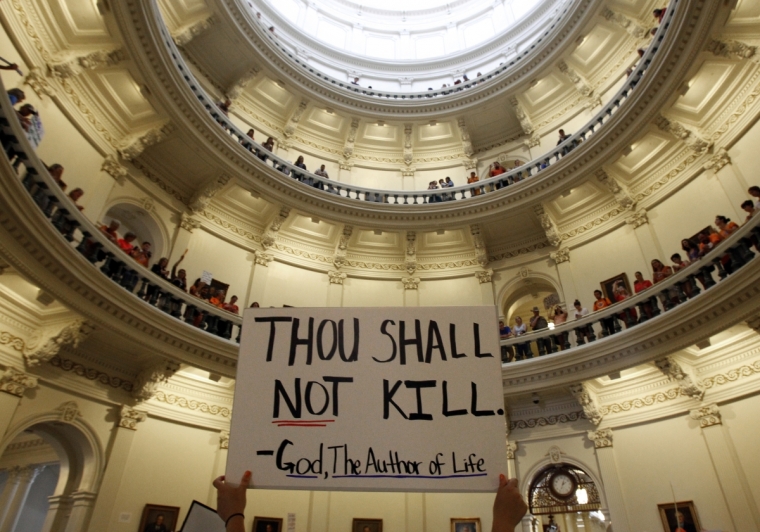Supreme Court will hear first abortion case in 8 years

WASHINGTON (Christian Examiner) – The U.S. Supreme Court on Friday announced it will hear a case challenging a Texas law which placed tighter controls on abortion clinics in 2013.
Under the law – Texas House Bill 2 – abortion doctors are required to have admitting privileges at a hospital within 30 miles of a clinic, and abortion clinics across the state are required to meet the same medical standards as "ambulatory" or outpatient surgery centers (ASCs). Opponents of the law argue it is a backdoor attempt to curtail abortion rights.
After the passage of the law, only a handful of the clinics were able to meet its requirements. Texas, which once had 41 abortion clinics, now has less than 20 and that number could be further reduced if the Supreme Court upholds the law, which has already survived several legal challenges.
The state has wide discretion to pass laws ensuring Texas women are not subject to substandard conditions at abortion facilities. The advancement of the abortion industry's bottom line shouldn't take precedence over women's health, and we look forward to demonstrating the validity of these important health and safety requirements in Court.
A federal appeals court unanimously upheld HB 2 when the case, Whole Woman's Health v. Cole, hit the court system earlier this year. In that ruling, the court said the closure of clinics deemed medically sub-standard by the state and women having to drive several hours for an abortion did not constitute an "undue burden" on them.
In June, however, the Supreme Court's five liberal justices voted to stay the lower court's ruling. Chief Justice John Roberts and Justices Antonin Scalia, Clarence Thomas and Samuel Alito, all conservatives, passed on the case. The case will likely be heard deep into the court's 2016 session.
On Friday, Texas Attorney General Ken Paxton issued a statement saying HB 2 was about the standard of care for women, rather than an attempt to limit access to abortion clincs.
"The common-sense measures Texas has put in place elevate the standard of care and protect the health of Texas women," Paxton said. "The state has wide discretion to pass laws ensuring Texas women are not subject to substandard conditions at abortion facilities. The advancement of the abortion industry's bottom line shouldn't take precedence over women's health, and we look forward to demonstrating the validity of these important health and safety requirements in Court."
The American Civil Liberties Union said a statement Friday the Texas bill was opposed by groups such as the American Medical Association, American College of Obstetricians and Gynecologists, American Academy of Family Physicians and American Osteopathic Association.
In a joint brief filed with the court, the medical groups said "mandating that abortion facilities meet ASC (ambulatory surgical center) standards deprives women of access to reproductive health care and is inconsistent with appropriate and accepted medical practice."
The director of the ACLU of Texas said the law was the brainchild of "extremists in the Texas legislature" who have been "whittling" abortion rights away since Roe v. Wade, which created the right to abortion in the United States in 1973.
"Medically unnecessary restrictions on health care providers like the ASC requirement advance politicians' ideological agenda, but at the expense of women's health. I'm hopeful that the Supreme Court will put the interests of Texan women over the political interests of Texas legislators and strike down this dangerous law before any more clinics close," Terri Burke, executive director of the Texas branch of the ACLU, said.
HB 2 gained significant national attention when state Sen. Wendy Davis of Fort Worth conducted an 11-hour filibuster of its Senate companion bill during the 2013 legislative session. That act propelled Davis to the forefront of the Democrat Party in Texas. She ran for governor against Attorney General Greg Abbott in 2014, but found it difficult to shake her image as "Abortion Barbie."
Davis lost the election to Abbott, garnering just 39 percent of the vote and winning only 19 counties in the conservative state.